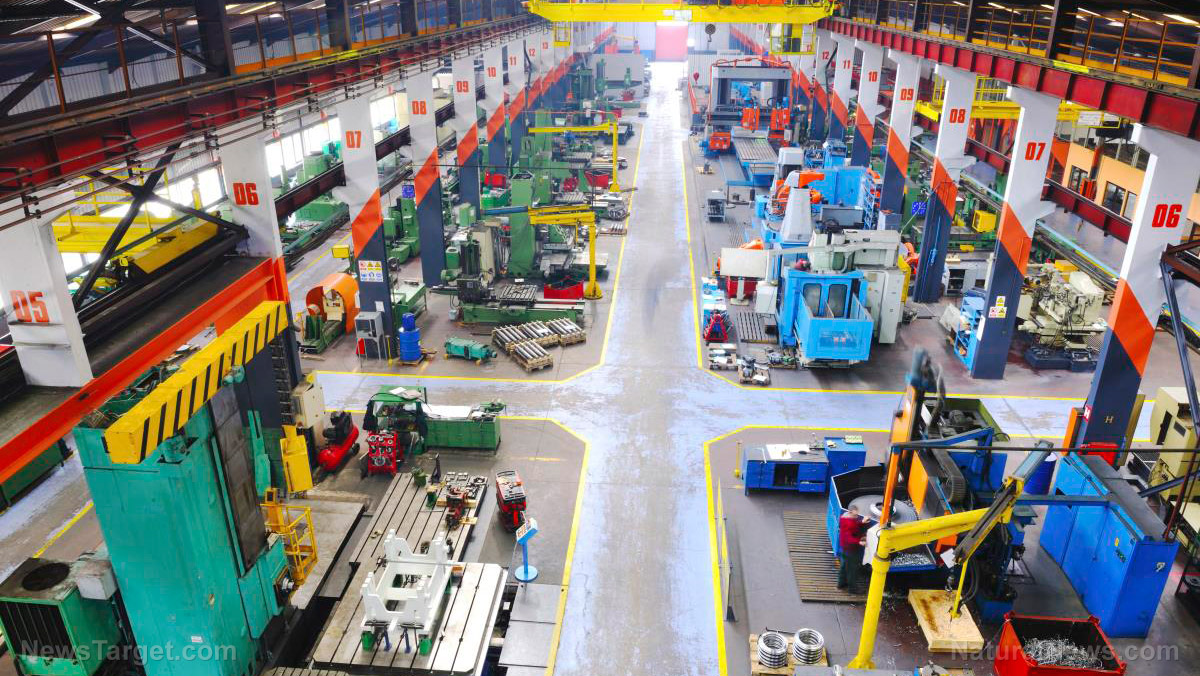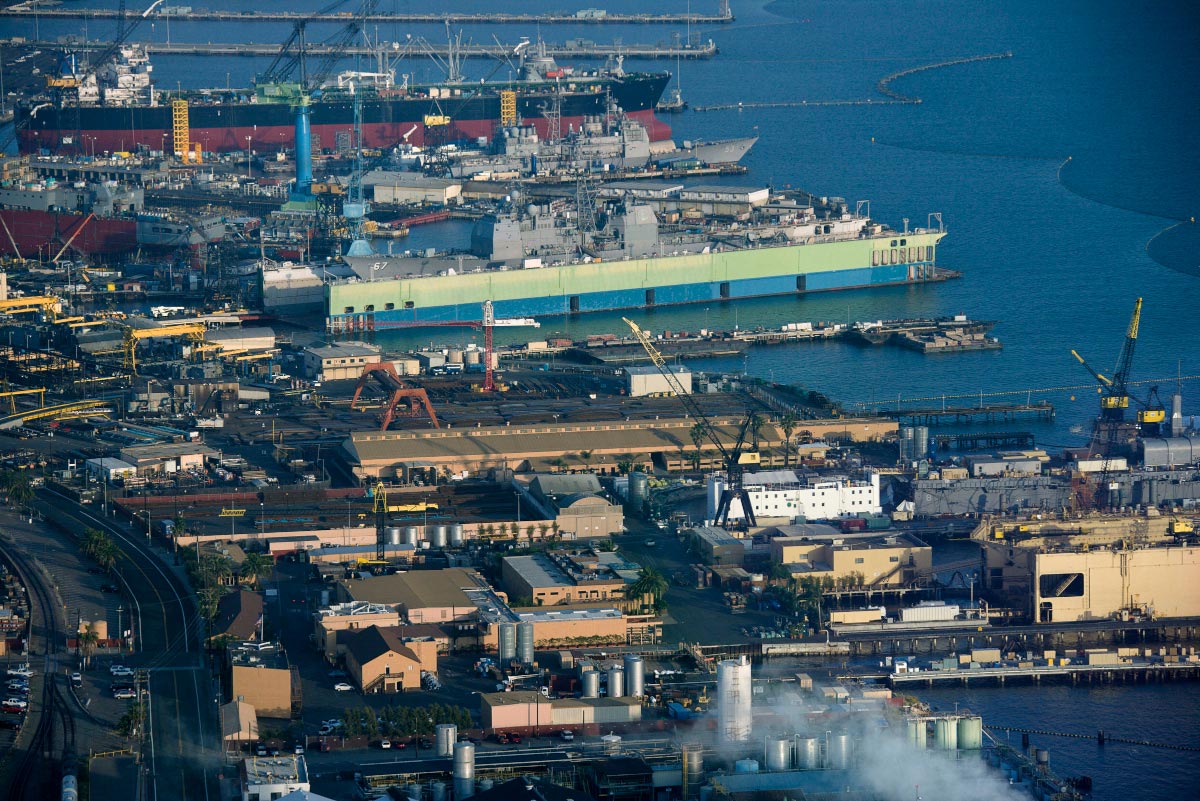 Parler
Parler Gab
Gab
Companies benefiting from keeping supply chains in America
Michael Araten, president of the Rodon Group, a plastic component manufacturing company based in Hatfield, Pennsylvania, said during an interview with Fox Business that the company has sped up the process of reshoring many manufacturing jobs that it previously offshored to China. Araten said the company has been reshoring manufacturing jobs for a while now, but the current state of the supply chain crisis – and the economy in general – has sped up how many jobs returned to the United States. "As we go to an era where we have so much more e-commerce, then you've got to be more responsive to your consumer," said Araten. "And the only way to be close to the customer is to shore the supply chain." Araten pointed out that labor and congestion issues are still plaguing America's ports. Shipping rates have increased by $9,000 on average since Jan. 2020 and a shipment from China could take six to eight weeks to arrive. "Here, you're a week away [from your shipment]. It's just a game-changer." Bayard Winthrop, president, founder and CEO of apparel manufacturer and retailer American Giant, explained in an interview with Business Insider that his company did not have any supply shortages during the holiday season because he is close to nearly every aspect of his company's supply chain. American Giant's cotton is grown in the South. It is spun into fabric and tailored into clothing in factories in the Midwest and the American Southeast. Customers order these clothes online and they are delivered straight to their doorsteps. Winthrop pointed out that this means none of the company's products or raw materials are stuck on container ships. He also doesn't need to pay extra for anything to be air-freighted into the United States. "We don't spend any time talking about supply chain stuff internally," he said. Greg Owens, CEO of Sherrill Manufacturing in New York state, which produced Liberty Tabletop, a line of cookware and flatware, said that his company's supply chain is "about as vertically integrated as you could possibly imagine." The company's raw materials are made in Western New York, Pittsburgh or Tennessee. These raw materials are then shipped to the company's manufacturing facility in Sherrill, central New York, and boxed up using locally sourced packaging.Companies with internal supply chains not immune to problems
This doesn't mean that companies relying on fully U.S.-based supply chains are immune to the challenges facing the American economy today. Raw materials prices are surging. The labor shortage is still present. Owens pointed out that it took a long time for Sherrill Manufacturing to fill the 25 positions it added to boost its production output. "There's not a guarantee that if you produce in the United States or North America, that you will be immune to any of this," said Scott Paul, president of the Alliance for American Manufacturing, an industry nonprofit organization that partners with both manufacturers and unions to bring more jobs to America. "But there is a better chance that you will be less impacted." Paul said relying almost exclusively on American products and raw materials means having more control over supply chains and greater flexibility when problems arise. It also means avoiding the backlogs that are still plaguing American ports. These challenges are leading more companies to reconsider bringing their supply chains closer to home. Paul noted that it's also making them think about diversifying their suppliers, making their manufacturing processes more flexible and sourcing more raw materials and other products within the United States. "I don't know anybody who's suggesting that we have autarky, that we just shut our country down and we're going to be self-sufficient," said Paul. "Just, the closer you are to your customer, the closer you are to your main assembly, the fewer things that can go wrong."More related stories:
Biden's engineered collapse proceeding as regime ban on unvaccinated foreign truckers set to worsen supply chain crisis. Report warns that supply chain backlogs might never let up. Shortage of semiconductors hits manufacturing industries as Biden fails to solve supply chain crisis. US burdened by tire shortage as global supply chain crisis continues. Listen to this episode of the "Health Ranger Report," a podcast by Mike Adams, the Health Ranger, as he talks about the possibility that the supply chain crisis might get worse in 2022 if pandemic-related lockdowns are brought back. This video is from the Health Ranger Report channel on Brighteon.com. Learn more about the ongoing supply chain crisis in the United States at SupplyChainWarning.com. Sources include: FoxBusiness.com BusinessInsider.com Brighteon.comAmericans lining up outside food banks as record inflation continues
By Belle Carter // Share
Diminished US refining capacity from facility closures contributing to soaring gas prices
By Belle Carter // Share
Port of Los Angeles director: US supply chain at risk if rail service does not improve
By Mary Villareal // Share
Nearly 100 hospitalized following consumption of Daily Harvest vegan product
By Belle Carter // Share
Massive uprising erupts in Panama over inflation and deteriorating economic conditions
By Arsenio Toledo // Share
Governments continue to obscure COVID-19 vaccine data amid rising concerns over excess deaths
By patricklewis // Share
Tech giant Microsoft backs EXTINCTION with its support of carbon capture programs
By ramontomeydw // Share
Germany to resume arms exports to Israel despite repeated ceasefire violations
By isabelle // Share










